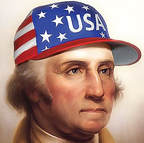weekly column
|
Each week, find a commentary on something connected to verses of Torah or another source of wisdom
|
|
Each week, find a commentary on something connected to verses of Torah or another source of wisdom
|
 The Exodus:5 Project You shall not bow down to them or serve them. For I the LORD your God am an impassioned God, visiting the guilt of the parents upon the children, upon the third and upon the fourth generations of those who reject Me Exodus 20:5 Guilt – the gift that keeps on giving. There are, of course, two kinds of guilt. When a crime or transgression has been committed, the responsibility for doing something wrong is some legal form of guilt, the opposite of innocence. However, when a person squirms under the oppression of conscience, sometimes without cause, the feeling is some psychological form of guilt. Being found guilty generally comes with consequences that can be quantified – reparations, incarceration, restitution or other penalties. But often the only quantifiable consequences of feeling guilty are bills for therapy. I used to deal with a lot of guilty people when I served as a pulpit rabbi. They fell into each of the two categories, but rarely both. People who were objectively guilty of crime or transgression frequently had what they considered to be an exonerating explanation, ranging from “I didn’t do it” to “I was misunderstood/set up/a victim of circumstances.” I couldn’t do much for those folks other than listen. Those who hoped for validation from me were always disappointed – the best I could do was be non-committal. To those who were lying to themselves and trying out their fabrications on me, the best I could offer was an appreciation of their frustration. I almost never had a set of facts that allowed me to be an honest broker. But I did find words from one such individual that helped me with all the others. He had been found out in a secret that yanked out the foundations of his life. He said to me, “Did I have a secret? Yes. Does everybody have a secret? At least one.” On the other hand, I often had some success offering a healing notion to those who felt guilty. The most profound and usual example of guiltiness was the surviving loved one – spouse, child, friend – who held him- or herself responsible for the death they were grieving. Some of them came to see me soon after a loss, others carried the guilt through life, even as they were blessed to see a third and fourth generation. This kind of guilt was attached to “if-only.” If only I had insisted on seeing a doctor sooner. If only I had decided to stay home that night instead of going out. If only I had recognized the cry for help. If only I hadn’t been so selfish. The variations on the theme are infinite, but they all come down to the same thing. When a loss occurs, especially by death, our careful tending of our lives is shattered. We have lost control, and whatever else we grieve, we are also bereaved of control. Better an assumption of responsibility that explains why things went so wrong than an acknowledgment that so much in life is beyond our control. If I had been more attentive, more skilled, less self-involved, smarter, less lazy, more loving…then the inevitable might not have occurred or, at least, have been postponed. There are three possible explanations for this kind of guilt. The first is an exaggerated sense of self. People who arrogate to themselves a sense of authority do not like to be reminded of how limited their actual power is. I gently urge them not to look for reaffirmation by exercising control over others to the third and fourth generation in order to compensate. The second is a profound sense of loss. The hole that has opened in their hearts makes these folks try to fill it as rapidly as possible. By grabbing from other places in their emotional landscape, they feel they can fill in the gap. I try to guide them to a gardening metaphor – if you try to fill a hole from the material already in your yard, you create other holes in its place that may be empty to the third and fourth generation. But the third is most hopeful. Sometimes, maybe even most times, the cause of these feelings is faith. A sense of belief in the rightness and justice of the world is so deeply ingrained in so many of us that we refuse to be disappointed. We accept a burden beyond our capability in order to preserve the notion of goodness and benevolence on the part of God or the cosmos in terms we select for ourselves. To such dear and desperate people, I try to offer the reassurance of our people’s legacy. Guilt may be persistent – to the third and fourth generation – but compassion is more so: to the thousandth. If they will just allow themselves comfort from the true object of faith, the Holy One of Blessed Name, they will start the clock on a thousand generations of compassion all over again. And their faith (and others’) can be restored.
0 Comments
 The Exodus:5 Project Now then, if you will obey Me faithfully and keep My covenant, you shall be My treasured possession among all the peoples. Indeed, all the earth is Mine Exodus 19:5 It is a lot easier to embrace the notion of American exceptionalism when there is something truly exceptional about America. I am not talking about ideals or legacies – I mean right now. I mean living up to the higher aspirations of those who came before. Chanting “USA! USA!” is cheerleading. Battering the man-child who is President is sport, not wisdom. Demanding the protection of some rights and the diminution of others lacks a coherent American logic. We have long believed ourselves to be a chosen people. We have laid claim to a manifest destiny and named a century after ourselves. Our right and might triumphed (with our allies) in the armed conflicts that engulfed the world twice. Our way of life outlasted the communist experiment. Our culture of self-expression (and sometimes self-absorption) is often imitated, never replicated. And while every other country and culture can claim to exceed our record of accomplishment in one or another way, taken as a whole, the reputation of the United States provokes more admiration around the world than any other country. And that is despite our incredible failures. Small wars conducted by implacable enemies flummox our military. We can’t seem to address and overcome the staying power of our prejudices. Our wealth should make it possible for us to eradicate poverty, hunger, under-education, health care costs and pollution, but we steadfastly refuse. Until very recently, we have shaken off our missteps and gone back to work on our challenges. Our self-confidence (or, if you prefer, arrogance) was justified by our desire to live into a better tomorrow. But today seems different in both form and substance. Back when America was allegedly great, it was only the bad guys who wanted to deny the American dream to those who had not yet achieved it. My generation – the one that has no choice but to claim our current circumstances – marched for rights and peace and clean air but threw forward too many leaders who normalized scandal and brand-building over morals and vision. Leaders in our industries and governments have encouraged the cannibalizing of our dreams: free love has become sexual harassment; religious liberty has become license to discriminate; cultural diversity has been slapped with a quota. And most important, the free marketplace of ideas now has a permitting fee and a fenced-off area for dissent. It is easy to blame our worst examples for our collective catastrophes. President Trump is the result, not the cause, of our shortcomings. The National Rifle Association did not hand out AR-15 semi-automatic rifles to mass murderers. Harvey Weinstein, it seems, is not an outlier. They are all reflections in the national mirror. If you are still reading at this point, I have reached the end of my screed. Still proud to be an American and still filled with hope for the future, I hope that the experience of the Jews, my people, which extends a dozen or more times farther back in history than the United States’, will prove instructive. We, too, carry the dubious moniker of “chosen.” When we were barely a people, weeks out of four hundred years of slavery, we were told that we were “treasured” among all others – a nation of priests and a holy people (which was the gold standard back then). But there was an “if,” right from the beginning. There was a mission and an accompanying set of responsibilities that came with chosenness. We had to live into that designation, not claim it as a right. Our entire history – from the Torah, through the Bible, through the Temples, through our wide dispersion – has been populated by our most admired leaders who urged us to live into our greatness. And, more important, they refused to validate our chosenness when we chose against it. We never lost the blessing of election, but it has never been ours except by our reciprocal choice. Indeed, making the Jewish people great again was never a matter of nostalgia, but of gleaning the best of our past and improving on our future with it. When we rely on the reputations of our forebears, it is not for chasing away strangers in our midst, manipulating wealth, deceiving family and friends or misbehaving sexually. Instead, we improve on their emulable qualities by setting a standard of welcoming, generosity, integrity and fidelity. When we decide to be worthy of our chosenness, then Jews – like everyone else – are chosen. When we aim to be exceptional, then Americans are exceptional. But it comes with a perpetual “if,” and only those who strive to earn rather than to claim will be great today, tomorrow and in tomorrow’s yesterday.  The Exodus:5 Project Jethro, Moses’ father-in-law, brought Moses’ sons and wife to him in the wilderness, where he was encamped at the mountain of God. Exodus 18:5 My father died when he was my age and I was in my mid-thirties. Since that time, the pater familias in our family was my father-in-law. He lived past his 93rd birthday and died early this year during a whirlwind couple of weeks in which a series of his chronic health problems collided. Oh, and the week he died his first great-grandson was born. The baby was circumcised on Sunday, my father-in-law was buried the next day. He was described with deep love and respect during his funeral. As is usually the case, the positives of his life were emphasized, which made me reflect on the shift in our relationship over the years. The way he reached out to me when I lost my dad was in inverse proportion to the earlier friction caused when I swaggered into his only daughter’s undergraduate life. I lived an adult life of profound gratitude and affection for him. The best part of his relationship with our family was his connection to his grandchildren. And though he was extremely attentive to his six granddaughters, born over the course of twenty years, he had a unique relationship with his unique grandchild: his only grandson, my only son, who was born smack in the middle of the years of family growth. From the beginning, they shared a sense of humor that was grounded in all the things that boys find hilarious and that provokes girls, including wives and mothers, to express disapproval with raised eyebrows and an elongated pronouncing of the offender’s name. (Here’s a hint for you young people out there: though it is genuinely the funniest invention of the human species, this toy will mysteriously disappear the same evening it is gifted.) My wife and I raised our boy into an extraordinary man, but there were parts of the wilderness of growing up that only a grandfather could help him explore. I had less interest in sports than they shared. I had no expertise in the stock market, let alone the idea to ask my kid to research some stocks and then buy a couple of shares with him to start his portfolio. My son evolved from my responsibility to my favorite guy to hang out with. But he grew into respect and affection for his seniors because of the slow transition from his grandfather’s little buddy to the guy who kept him vital and active. There are some things a father is not well-equipped to do. The complicated responsibilities that a dad has can eat into the time (and, to be honest, the willingness) to give a son his due. So much of self-image is involved in a father raising a son that, try as we might, we cannot avoid the mini-me syndrome. But a grandfather has time for the wandering that is a necessary part of growing up. He has raised his mini-mes and has nothing to prove. That's why people often say of their fathers, "He was a good dad, but he was a terrific grandfather." I can't write about mothers and daughters and grandmothers on either side of the family. I am an observer of those relationships. When Jethro brought Moses' wife to him in the wilderness, I can imagine certain things, but I can't know the heart of anyone in that part of the story. But I know what it is like for your father-in-law to bring your boy home from some adventure in some wilderness. I know what it is like to see the gleam in two sets of eyes, the physical exhaustion, the inside jokes, the adhesive quality of their mutual affection, the anticipation of next time. For me, it is a reminder and a promise. It is so far beyond words that even the Bible doesn't try to record Moses' reaction. All seven of his grandchildren will miss my father-in-law in a distinct way, because he had that kind of relationship with each of them. Some things will be the source of collective amusement – he had two jokes he told so frequently that we could recite the punchline with him. But my Jethro will carry with him to the next world my gratitude for always bringing back my boy a little more of the man he has become.  The Exodus:5 Project Then the LORD said to Moses, “Pass before the people; take with you some of the elders of Israel and take along the rod with which you struck the Nile and set out. Exodus 17:5 I love the craziness of the TV series “Mozart in the Jungle.” The complicated personal stories of musicians and others who make the music of a symphony orchestra illustrate for a listener like me that the beautiful end-product is refined from a cacophony that precedes it. There is a long process of sorting out bad notes and bad relationships before a group of people can collaborate harmoniously. At the center of my fascination is the conductor. He’s a real character in the show, but conductors in general have fascinated me. I watched Leonard Bernstein’s “Young People’s Concerts” as a kid, enjoyed Danny Kaye’s playful turns on the podium and learned a series of important lessons in leadership from Israeli conductor Itai Talgam. Itai is not only a maestro, he is a student of the art. He teaches army officers, corporate executives and rabbis about leadership by analyzing the styles of famous conductors – the aloof Muti, the authoritarian von Karajan, the formal Toscanini, the passive-aggressive Kleiber and, of course, the seductive Bernstein. Here's what they all have in common: the baton. It’s a magic staff that seems to control the ebb and flow of the music as it is deployed by the conductor. That stick holds an incredible power which is, I don’t need to tell you, no power at all. The baton is an extension of the man, and the energy that is emitted by it is generated and, well, conducted from the wellsprings of the bearer. Certainly, I have seen conductors use only their hands as well as a variety of objects for comic effect. But without a baton, the conductor is no conductor. But the baton in and of itself is not enough. I know this because when I was five years old, my parents took me to Disneyland. I had the chance to conduct the band in the town square, waving around the white wand placed in my hand by the bandleader. The band did an expert rendition of the “Washington Post March,” a Sousa classic. When I later saw the 8mm film that my dad shot of the moment, even at that young age I recognized that I looked like I was trying to swat a fly, and the band leader, standing discretely behind me, was keeping the time and directing the musicians. 30 years later, I talked the bandleader in Disneyworld into letting me repeat the gig. I promised I would never ask again. He let me conduct the same song. I was, again, awful. He was, again, behind me. What is the allure of the stick, the rod, the staff, the wand, the scepter, the baton? Harry Potter and lesser magicians use them to effect spells and enchantments. Tribes use them to confer authority to govern or merely to speak. Potentates of various kinds hold them as a symbol of dominance. Stage managers use them to clear the failing act from the vision of the audience. I won’t deny that there is something phallic about a man waving a baton, but we would reduce the symbol to ridicule if we confused the referential with the functional. And the women who have stepped up to the podium to conduct are not engaged in an exercise of borrowing male power – they have the same magic in front of an orchestra as Hermione has at Hogwarts. Our attention is misdirected when we attribute some sort of potency to the stick. The Bible may set us up by attributing all sorts of tricks to Moses’ rod – turning into a snake, changing the water of the Nile to blood, splitting the sea and bringing water out of a rock. But it’s not the stick. I can’t tell you by what actual power Moses did (or did not?) identify the rock and bring forth a stream of water. But I can tell you that the fictional Rodrigo, the masterful Talgam and the anonymous bandleader are responsible from within for whatever power the baton holds. It is the person who graduates from believing in the power of the magic staff to harnessing the power of internal skills and capacities who is authorized by the stick…which is just a stick. By the way, if you want to read ahead to Numbers 20:11-12, you’ll find what we lose when we believe otherwise. |
Archives
October 2023
Categories |